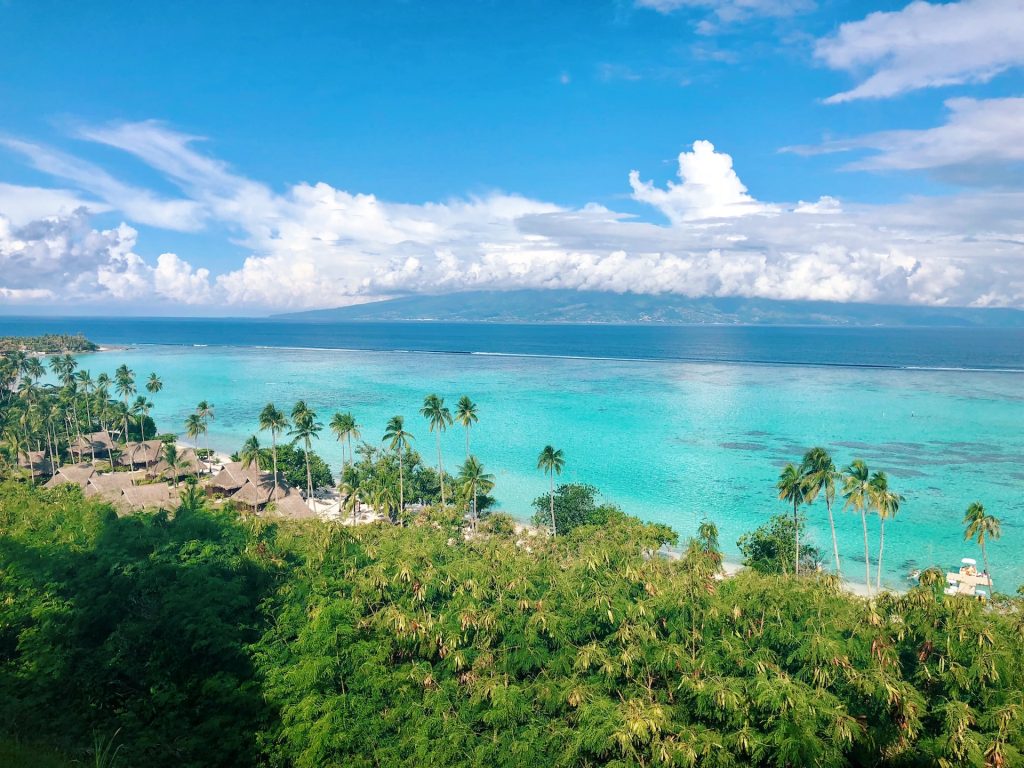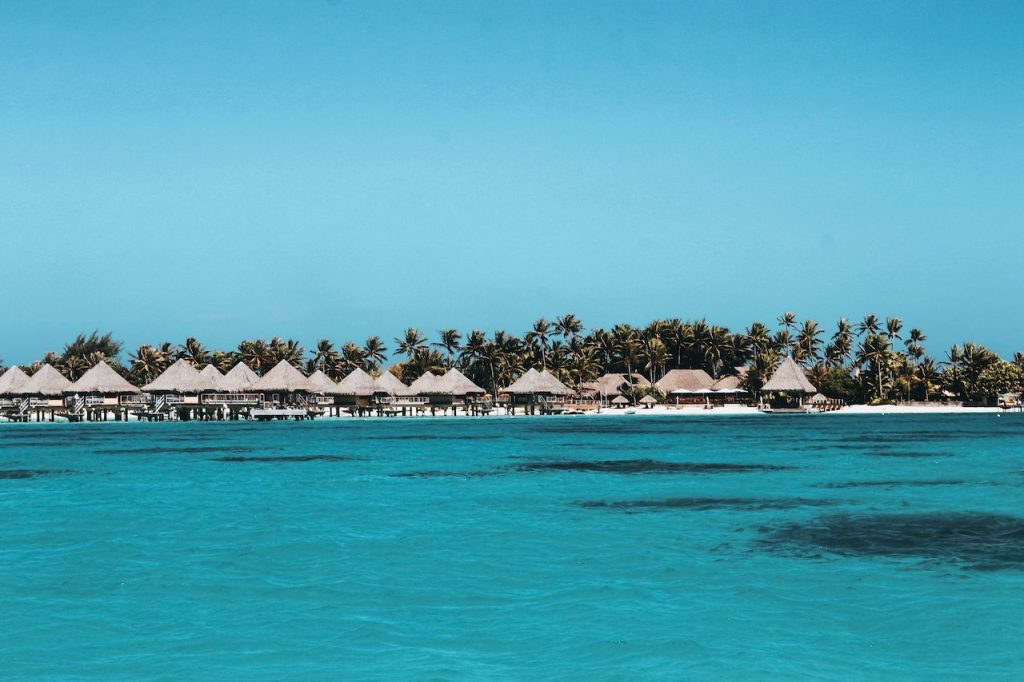Cannabis could soon be legalized in French Polynesia and Dominica, with the Dominican government hinting it could implement commercial regulations by 2023. In French Polynesia, a health commission is set to meet to discuss the proposed legalization of medical cannabis on the island, which would allow the establishment of a new industry. Personal use of cannabis is already legalized in Dominica.
Dominica and French Polynesia Could Soon Legalize Cannabis


As acceptance of cannabis continues to grow, more states and countries are joining the movement to legalize cannabis. Today we have two updates from Dominica and French Polynesia.
On Dominica, the government has declared that it could legalize its cannabis industry by 2023, while the Polynesian Health Commission will soon meet to review the proposed legalization of medical cannabis.
To follow the latest legalization updates, download our free cannabis news app.
Dominica Hopes to Launch Its Cannabis Industry in 2023
The government of Dominica has announced that it is on track to introduce legislation allowing the establishment of its cannabis industry by next year.
Speaking on public radio, Dominica’s Prime Minister Roosevelt Skerrit told listeners that his administration would introduce the appropriate legislation in Parliament before the end of the year.
Personal Use Cannabis Is Already Legal, Next Move Is to Commercialize
Currently, cannabis is already decriminalized in Dominica, with up to 28 grams of cannabis for one person and up to three plants per household for self-cultivation permitted.
“We announced in this year’s budget to provide permits and licenses for people who are into the production of cannabis oils, creams and lotions, and soaps because we recognize that there are a number of Dominican citizens who are suffering from cancer and are using cannabis oil to bring them some relief.”
“So we are in the process of setting up the mechanism and the certification, which also involves providing certificates to growers and farmers so they can plant and cultivate this plant,” Skerrit said.
Canadian Government Has Lent its Support
He said that earlier this year, with the support of the Canadian government, Dominica received assistance in drafting the necessary legislation to deal with cannabis as a medical industry for export…”
He also said that there are several processes that need to be followed and that the Canadians “through a project are helping us with that,” adding that a national committee chaired by Attorney General Levi Peter is looking at the legislation as well as “the various treaties that we need to sign.”
“So we’re moving forward with great strides. I think next year we will certainly be able to pass this legislation and have a full-fledged cannabis industry in Dominica so that we can take advantage of the many opportunities related to cannabis,” Skerrit said.
Several Caribbean countries, including Jamaica, Barbados, and St. Kitts and Nevis, are establishing similar industries.
French Polynesia Examines Its Plan to Legalize Medical Cannabis


The health commission of the Polynesian Assembly is scheduled to meet very soon to examine the proposed legalization of medical cannabis in Polynesia.
The bill, which you can read here, provides an overhaul of the 1978 regulations on “the import, export, purchase, sale, possession, and use of poisonous substances.”
Currently, the principle is that of a general prohibition of any use of cannabis or its derivatives, the only exemption being for research.
Cannabis Regulation Is in Dire Need of Revision
“A revision of the regulation is necessary,” says the preamble of the text, which cites, in particular, the “progress in medical research” or the recognition of the “therapeutic potential of cannabis” by the United Nations Commission on Narcotic Drugs in December 2020.
The text, therefore, plans to change the current regulations in order to “authorize the therapeutic use of cannabis in the form of medicine, which will have to comply with the regulations on medicine in force in French Polynesia,” but also “authorize the agricultural production of cannabis and hemp for industrial purposes, including pharmaceutical, under strict control and within the framework of a regulation under the Single International Convention on Narcotic Drugs of 1961”.
Legally, the principle remains that of a “general prohibition of any operation relating to cannabis,” but with exceptions provided for by the law and subject to an authorization regime for therapeutic cannabis and hemp, in the same way as in mainland France.
For hemp, defined as a plant with less than 0.3% THC, cultivation in Polynesia will be “authorized” and intended for any non-medical product containing no more than 0.3% THC (food products from the seeds and wellness products). The text already foresees evolving the THC rate in the plants to 1% concentration.
Cannabis Cultivation Reserved for Medical Purposes
The cultivation of cannabis with more than 0.3% THC will be exclusively reserved for the “manufacture of medicines in accordance with local regulations and massage products for therapeutic use” and the export of medical cannabis.
Local patient associations have been calling for medical cannabis regulation in Polynesia for many years. In a video posted on Facebook, Philippe Cathelain of the Syndicat Polynésien du Chanvre and Karl Anihia, president of the association Tahiti Herb Culture (THC), share their satisfaction with this first regulatory step.
“It’s a great satisfaction. It’s the outcome of a project we’ve been asking for for 2 years already, when we started to discuss with the Ministry of Health. But it responds above all to an urgent need of a part of our population wishing to access cannabis-based medicines for various pathologies.”
—
(Featured image by Reiseuhu via Unsplash)
DISCLAIMER: This article was written by a third-party contributor and does not reflect the opinion of Hemp.im, its management, staff, or its associates. Please review our disclaimer for more information.
This article may include forward-looking statements. These forward-looking statements generally are identified by the words “believe,” “project,” “estimate,” “become,” “plan,” “will,” and similar expressions. These forward-looking statements involve known and unknown risks as well as uncertainties, including those discussed in the following cautionary statements and elsewhere in this article and on this site. Although the Company may believe that its expectations are based on reasonable assumptions, the actual results that the Company may achieve may differ materially from any forward-looking statements, which reflect the opinions of the management of the Company only as of the date hereof. Additionally, please make sure to read these important disclosures.
First published by Newsweed (article 1, article 2), a third-party contributor translated and adapted the articles from the originals. In case of discrepancy, the originals will prevail.
Although we made reasonable efforts to provide accurate translations, some parts may be incorrect. Hemp.im assumes no responsibility for errors, omissions, or ambiguities in the translations provided on this website. Any person or entity relying on translated content does so at their own risk. Hemp.im is not responsible for losses caused by such reliance on the accuracy or reliability of translated information. If you wish to report an error or inaccuracy in the translation, we encourage you to contact us.



Comments are closed for this post.